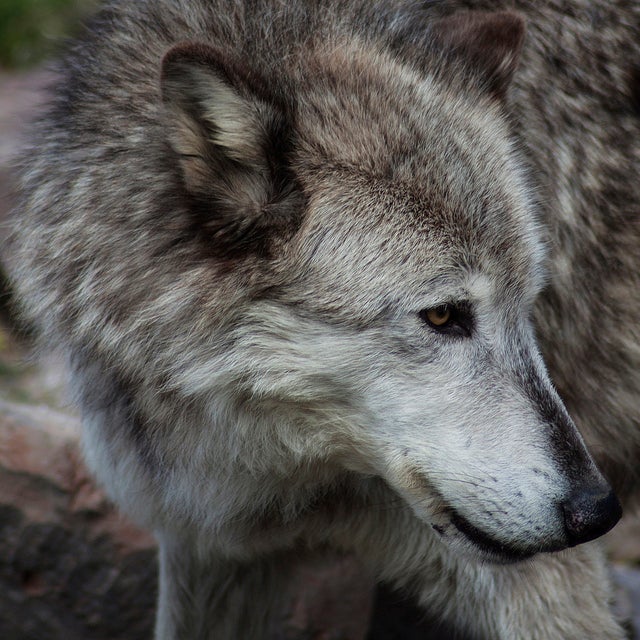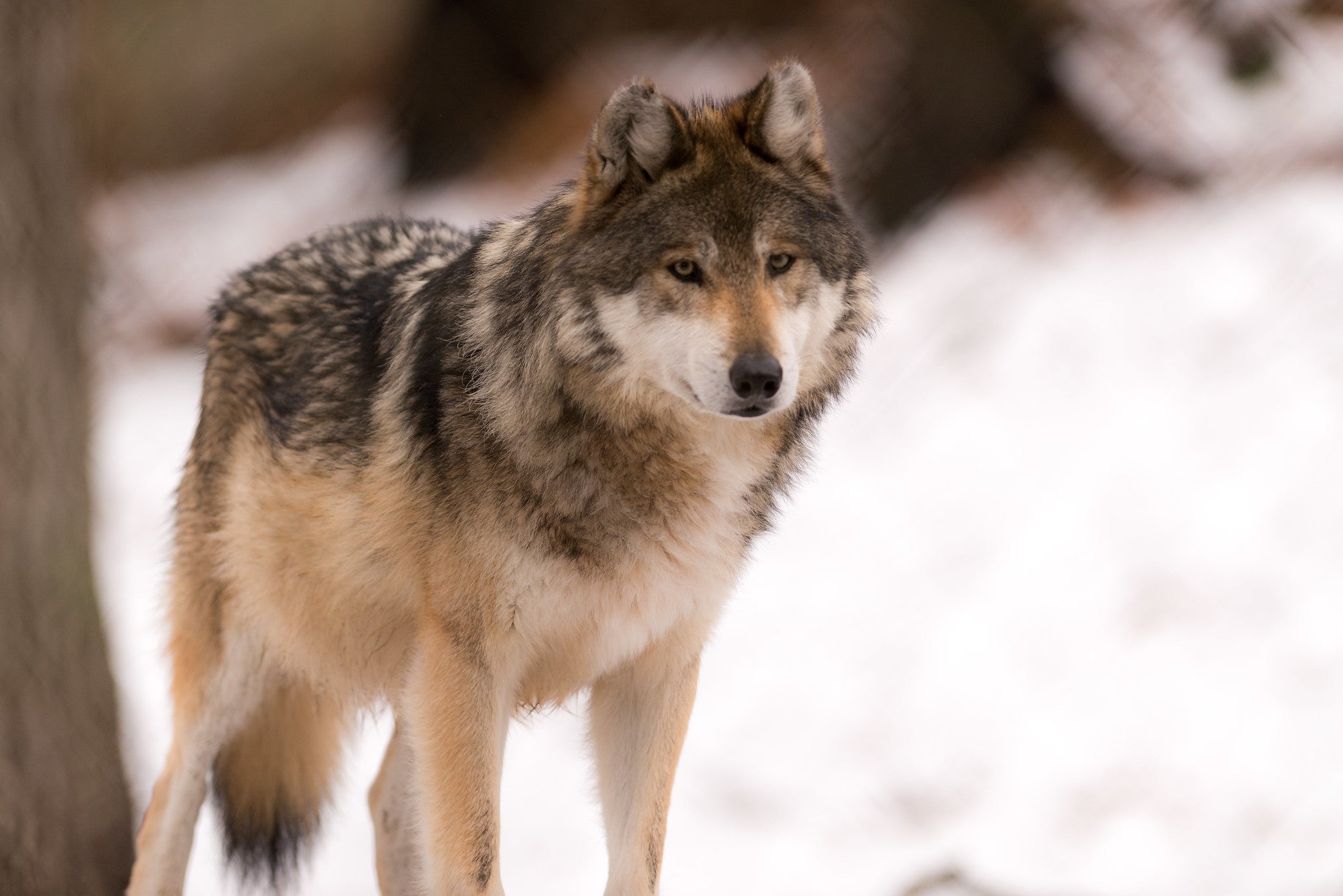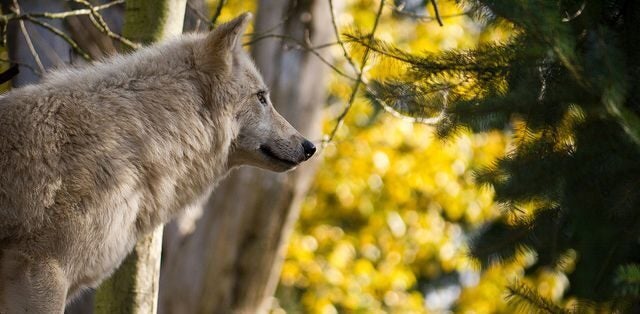The Department of Natural Resources said wolf hunters may soon start letting dogs chase wolves, as part of training for the fall wolf hunting season.
A Wisconsin court last week allowed wolf hunters to have their dogs pursue wolves for training purposes. DNR wolf expert Dave MacFarland said there were no additional rules his agency had to approve.
He said he expects wolf hunters to do the same sort of things as hunters of coyotes, bobcats and bears.
Stay informed on the latest news
Sign up for WPR’s email newsletter.
“We’re currently, for example, in our bear training season,” said MacFarland. “Hunters are out using the same regulations that apply during the bear season — pursuing bears, but not harvesting them at the end of the pursuit.”
MacFarland said if a dog were to catch up with a wolf, the hunter would have to immediately gain control of the dog and release the wolf unharmed.
MacFarland said wardens will be out looking for violations. He said if a dog bites a wolf, the hunter could get a ticket.
“If the person who is out training knowingly allows their dog to engage with the wolf, and allows that activity to continue without trying to immediately stop it, then they would be in violation,” said MacFarland.
MacFarland said wolves that are chased during dog training may be more stressed; whether the stress is excessive, he said, would depend on the nature the pursuit and how often the wolf is chased.
Rachel Tilseth of Wolves of Douglas County, Wisconsin said she especially worries about the pups of adult wolves.
“They leave pups at rendezvous sites while they go out hunting,” said Tilseth. “What will happen when the dogs run into 4-month-old puppies at these rendezvous sites?“
Tilseth said she hopes wolf hunters use caution.
Other wolf advocates are criticizing the DNR for not moving faster on permanent rules covering dog training. The DNR says it intends to have something in place before the next wolf breeding season.
Wisconsin Public Radio, © Copyright 2025, Board of Regents of the University of Wisconsin System and Wisconsin Educational Communications Board.







